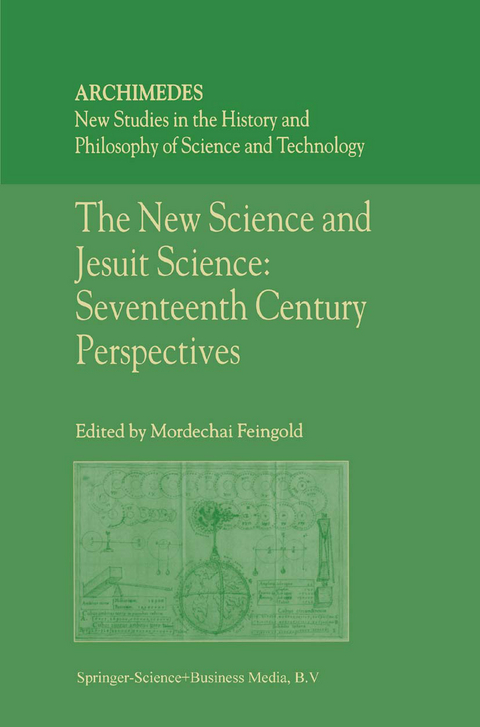
The New Science and Jesuit Science
Seventeenth Century Perspectives
Seiten
2011
|
Softcover reprint of the original 1st ed. 2003
Springer (Verlag)
978-90-481-6115-7 (ISBN)
Springer (Verlag)
978-90-481-6115-7 (ISBN)
"One cannot talk about mathematics in the 16th and 17th centuries without seeing a Jesuit at every corner," George Sarton observed in 1940. * Sarton, of course, was not the first to recognize the disproportionate representation of members of the Society of Jesus in the scientific enterprise of the early modern period. However, unlike many historians who belittled the discernible numerical strength of the Jesuits on the grounds that they lacked originality and were generally hostile to new ideas, Sarton correlated numerical strength with significance. Hence his plea for collecting the papers of that industrious historian of Jesuit science, Henri Bosmans, was quite refreshing. Yet Sarton's appeal went unheeded, and not only with respect to Bosmans' papers. The perception of the Jesuits as plodding pedagogues and obscurantists remained as ingrained as ever, virtually sanctioning the disregard of their activities. Such neglect meant that the exact nature of the Jesuit contribution to the Scientific Revolution remained sketchy at best; only recently - owing to a long-overdue examination of the Order's archives and of published texts - have new contours begun to emerge. Striking in this reassessment is a more nuanced appreciation of the Jesuits' interaction with "modernity" and a far greater recognition of the Jesuit contribution to the two poles of modern science: the mathematization of natural philosophy and experimental science.
Mathematics and Modesty in the Society of Jesus: The Problems of Christoph Grienberger.- The Grounds for Conflict: Grienberger, Grassi, Galileo, and Posterity.- Additio illa non videtur edenda: Giuseppe Biancani, Reader of Galileo in an Unedited Censored Text.- Two Jesuit Responses to Galileo’s Science of Motion: Honoré Fabri and Pierre Le Cazre.- Jesuit Mathematical Practice in Portugal, 1540–1759.- The Celestial Pilgrimages of Valentin Stansel (1621–1705), Jesuit Astronomer and Missionary in Brazil.
| Reihe/Serie | Archimedes ; 6 |
|---|---|
| Zusatzinfo | 18 Illustrations, black and white; IX, 270 p. 18 illus. |
| Verlagsort | Dordrecht |
| Sprache | englisch |
| Maße | 155 x 235 mm |
| Themenwelt | Geisteswissenschaften ► Geschichte |
| Geisteswissenschaften ► Philosophie ► Geschichte der Philosophie | |
| Geisteswissenschaften ► Philosophie ► Philosophie der Neuzeit | |
| Geisteswissenschaften ► Religion / Theologie | |
| Mathematik / Informatik ► Mathematik ► Geschichte der Mathematik | |
| ISBN-10 | 90-481-6115-0 / 9048161150 |
| ISBN-13 | 978-90-481-6115-7 / 9789048161157 |
| Zustand | Neuware |
| Haben Sie eine Frage zum Produkt? |
Mehr entdecken
aus dem Bereich
aus dem Bereich
die kolonialen Wurzeln der französischen Theorie
Buch | Hardcover (2024)
Matthes & Seitz Berlin (Verlag)
28,00 €
oder Das Leben Montaignes in einer Frage und zwanzig Antworten
Buch | Softcover (2023)
C.H.Beck (Verlag)
18,00 €


